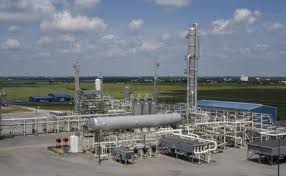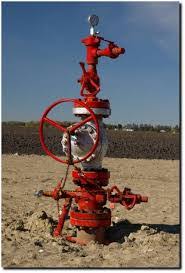
Energy producers in Oklahoma have had their say whether the Corporation Commission should continue with a 50% prorationing rate on unallocated gas wells. Some say the rate should be higher. Some believe it should be continued at the 50% rate.
No decision was reached Thursday as the three commissioners heard arguments for and against during their regular meeting. A long list of representatives for oil and gas companies spoke to the regulators after also filing responses earlier in the week.
The Commission took the issue under advisement after extensive questioning of its staffers who recommended a continued 50% prorationing rate which was initially approved in March 2020.
As OK Energy Today reported earlier in the week, the recommendation came from Duncan Woodliff, Manager of Production and Proration for the commission’s Oil and Gas Conservation Division. He had met July 15 with a dozen representatives of gas operations, pipeline firms and industry groups.
Devon Energy had offered comments stating that it “supports no limits, or 100% calculated absolute open flow.” The company contended that the price differentials have “strengthened significantly”and remained against the OCC “trying to intervene in the markets.”
The American Petroleum Institute urged the Commission to reverse its 50% decision claiming, “the market has already responded, generating relatively stronger Oklahoma natural gas prices but not necessarily due to proration, so proration is unnecessary.”

Houston’s Ovintiv Services, a company that plans to invest more than $400 million in Oklahoma this year with the operation of 918 wells and 376,000 net acres under lease, came out against the continued 50% proration.
“The OCC’s gas proration policy serves as a significant hurdle to future investment in gas wells in Oklahoma,” wrote Matthew R. Vezza, Ovintiv’s Vice President and General Manager of th Anadarko and Rockies Operating areas.
Continental Resources favored the continued 50% proration.
“Even though we have seen additional pipeline takeaway capacity come on line, the gas market that Oklahoma produces into remains oversupplied due to the lasting effects of a warm winter and COVID-19 related global demand destruction,” stated the company. “Now is not the time to reverse course from disciplined gas production.”
Marathon Oil came out in support of gas well production of 100% of the absolute open flow potential of a well. The company’s Tom Hellman, Vice President of Oklahoma Asset, Land and Chief Completions Engineer wrote the commission, “–any regressive actions taken by the State to influence US and Global gas markets are limited based on the relative small percentage contribution to overall gas supply.”
He said the percentage of monthly dry shale gas production from Oklahoma’s Woodford and Mississippian shale plays is “less than 8% of total US shale gas production.” Marathon operates 389 wells in the state with a leasehold of nearly 250,000 net acres.
Corporation Commissioner Bob Anthony, who voted against the prorationing approved in March again questioned government intervention in the free market. He took note that the gas from some oil wells is “associated production” or a secondary product that is not regulated.
In expressing empathy with some of the energy companies, the Commissioner stated, “if a significant amount of gas produced is not subject to these regulations, we don’t have a handle on the whole thing.”
“Regulation may sound great in theory, but different in practice,” he said in concluding his remarks.
The current prorationing rate of 50% expires on Sept. 29 and the recommended continuation, if approved by the commission, would take effect the first of October.






